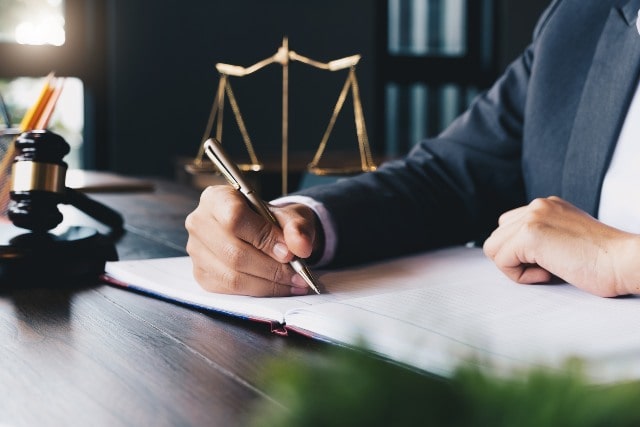Understanding the Duty of a Post-Conviction Lawyer in Looking For Justice After a Criminal Sentence
In the complicated landscape of post-conviction lawful process, the function of a post-conviction attorney is essential in browsing the course to justice after a criminal conviction. Past the confines of a test, these legal specialists participate in a diverse strategy targeted at uncovering brand-new evidence, difficult legal errors, and promoting for their clients' civil liberties. The ins and outs of post-conviction job need a mix of legal acumen, investigative abilities, and calculated believing to unwind the complexities of a situation and seek methods that might have been overlooked or underexplored. As the search of justice extends beyond the boundaries of first process, the role of a post-conviction lawyer becomes a sign of hope for those looking for to fix injustices and redeem their legal rights within the legal system.
Post-Conviction Lawyer's Investigative Job
Post-conviction legal representatives participate in precise investigative work to discover new proof, step-by-step mistakes, or transgression that could possibly cause overturning a sentence. This investigative stage is vital in the post-conviction process as it intends to identify any forgotten details or lawful mistakes that might have impacted the result of the initial trial. Post-conviction lawyers delve right into case data, witness statements, and legal paperwork with a fine-tooth comb, looking for any type of discrepancies or irregularities that can be premises for appeal.
With complete examination, post-conviction legal representatives intend to lose light on potential injustices that may have taken place throughout the original test. They may conduct meetings, talk to specialists, and review forensic evidence to construct a compelling instance for their customers. By scrutinizing every facet of the legal proceedings, post-conviction lawyers work relentlessly to uncover any elements that might have influenced the judgment. Inevitably, their investigatory work plays a crucial duty in the search of justice and the potential reversal of wrongful convictions.
Crafting Appeals and Petitions
In the pursuit of justice after a sentence, knowledgeable attorneys thoroughly craft allures and applications to existing compelling disagreements for the reconsideration of legal choices. Crafting allures and petitions needs a deep understanding of the legal system, focus to detail, and strategic reasoning. Post-conviction legal representatives analyze trial records, determine possible mistakes or infractions of civil liberties, and establish lawful arguments to challenge the sentence or sentence.
When crafting an allure, attorneys concentrate on highlighting legal errors that may have impacted the end result of the situation. They look into situation regulation, laws, and lawful criteria to support their disagreements. Applications, on the other hand, might involve offering new proof that was not available during the test or showing adjustments in the law that require a testimonial of the conviction.
Furthermore, post-conviction lawyers need to comply with strict step-by-step policies and deadlines when filing allures and why not try here applications. They have to provide their arguments clearly and persuasively to convince the court to approve alleviation to their clients. Via thorough crafting of charms and requests, post-conviction legal representatives aim to safeguard justice for individuals who have actually been wrongfully founded guilty or unjustly punished.

Seeking Post-Conviction Alleviation
Post-conviction relief encompasses a range of legal mechanisms designed to challenge the legitimacy of a sentence or sentence. Post-conviction legal representatives play an important function in navigating these intricate procedures, ensuring that all lawful alternatives are checked out to correct oppressions that might have occurred throughout the trial or sentencing stage.
One usual type of post-conviction alleviation is filing an application for post-conviction alleviation, generally based on insurance claims of inadequate aid of advise, prosecutorial misconduct, freshly found proof, or constitutional offenses. Experienced post-conviction legal representatives have the skills and understanding required to determine practical lawful insurance claims, conduct investigations, and present engaging arguments to safeguard alleviation for their customers.
Utilizing Forensic Proof
When testing a sentence or sentence, the critical usage of forensic evidence can be an effective tool in post-conviction legal proceedings. Forensic evidence encompasses a wide variety of scientific methods used to investigate criminal activities and develop realities in court. Post-conviction lawyers can take advantage of forensic evidence to challenge the validity of sentences by presenting brand-new clinical findings that were not available throughout the original trial.

Taking Part In Sentence Adjustments
Post-conviction lawyers might explore the possibility of sentence modifications as a lawful method to attend to out of proportion or unjustified sentences passed on in criminal situations. Sentence adjustments include looking for changes to the regards to an offender's sentence after a conviction has happened. These alterations can include reducing the size of a sentence, altering the type of penalty enforced, or exploring different sentencing options.
Post-conviction attorneys can go after sentence adjustments with different lawful devices, such as filing motions for sentence reduction, appealing for compassionate launch, or working out plea bargains for decreased sentences. They should thoroughly review the situations of the instance, evaluate the lawful premises for seeking a modification, and existing compelling debates to the court supporting the need for a revised sentence.
Participating in sentence modifications calls for a thorough understanding of criminal regulation, punishing standards, and the certain procedures involved in looking for post-conviction relief. Post-conviction legal representatives play a crucial duty in advocating for reasonable and just outcomes by tough sentences that are unduly harsh or do not line up with the concepts of justice.
Conclusion
To conclude, the function of a post-conviction legal representative is vital in seeking justice after a criminal sentence. With investigative job, crafting appeals and applications, seeking post-conviction alleviation, making use of forensic proof, and engaging in sentence adjustments, these legal specialists play a vital role in promoting for their customers and making certain that their rights are promoted within the criminal justice system. Their commitment and expertise are vital in navigating the complexities of post-conviction proceedings and attaining a reasonable outcome for people encountering criminal convictions.